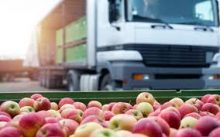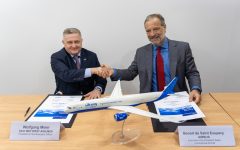
The Move to -15°C, a sustainability initiative dedicated to cutting carbon emissions in the frozen food supply chain, has more than doubled its membership since its launch at COP28.
The frozen food temperature set point of -18°C was established as an industry standard a century ago, but with little evidence, and logistics technology has improved substantially since.Building on academic research which shows that a small three-degree change in temperature could make a significant environmental impact with no compromise on food safety, the Move to –15°C aims to reduce emissions and cut supply chain costs.
Recognising that a shift in temperature set points from -18°C to -15°C requires a collaboration from the entire frozen food supply chain, the Move to -15°C recently secured support from Nomad Foods, Europe’s leading frozen food manufacturer and the company behind iconic brands, including Bird’s Eye, Findus and Iglo. In February 2024, Nomad Foods released the 12-month results of its ongoing landmark study, which revealed that storing frozen food at -15°C, instead of the industry standard -18°C, can reduce freezer energy consumption by 10 -11% without any noticeable impact on product safety, texture, taste or nutritional value.
Other key players within the food industry have also shown their commitment to the Coalition, including international Danish food company, Danish Crown, and the American Frozen Food Institute, which represents many of America’s frozen food and beverage makers.
Since launch, commitment from the global transport andlogistics industry has continued to grow. Indicold, provider of reliable, cost-effective cold storage and logistics solutions in India, worldwide transport and logistics provider, Blue Water Shipping, and Europe’s second largest cold logistics operator, Constellation Cold Logistics are the latest to join industry peers in the Move to –15°C.
Furthermore, one of the largest purchasers and lessors of refrigerated containers in the world, Seacube Container Leasing, IoT technology pioneers, Orbcomm, and Seafrigo, which has developed a worldwide network within the refrigerated space, have also recently joined the Coalition.
Thomas Eskesen, Chairman of the Move to -15°C Coalition, said: “Collaboration is essential to our success, so we are delighted to have attracted so many notable new members to our Coalition. Not only is it great to see our geographic footprintgrowing, but we are also seeing more members and representatives from across every stage of the frozen food supply chain.
“By redefining temperature set points, we stand to make a significant impact in the decarbonisation of global supply chains. But no one company can do this alone. To set us up for success, our focus remains on scaling our membership base and we encourage key players within the frozen food supply chain to reach out and get involved.”
On 25th June, Thomas Eskesen joined the panel discussion‘Revolutionising Food Sustainability and Supply Chains’ at Reset Connect, where he and other industry experts discussed the challenges confronting the food industry today and the solutions, like the Move to –15°C, that are being deployed to tackle them head-on.
 Cargo Breaking News
Cargo Breaking News


